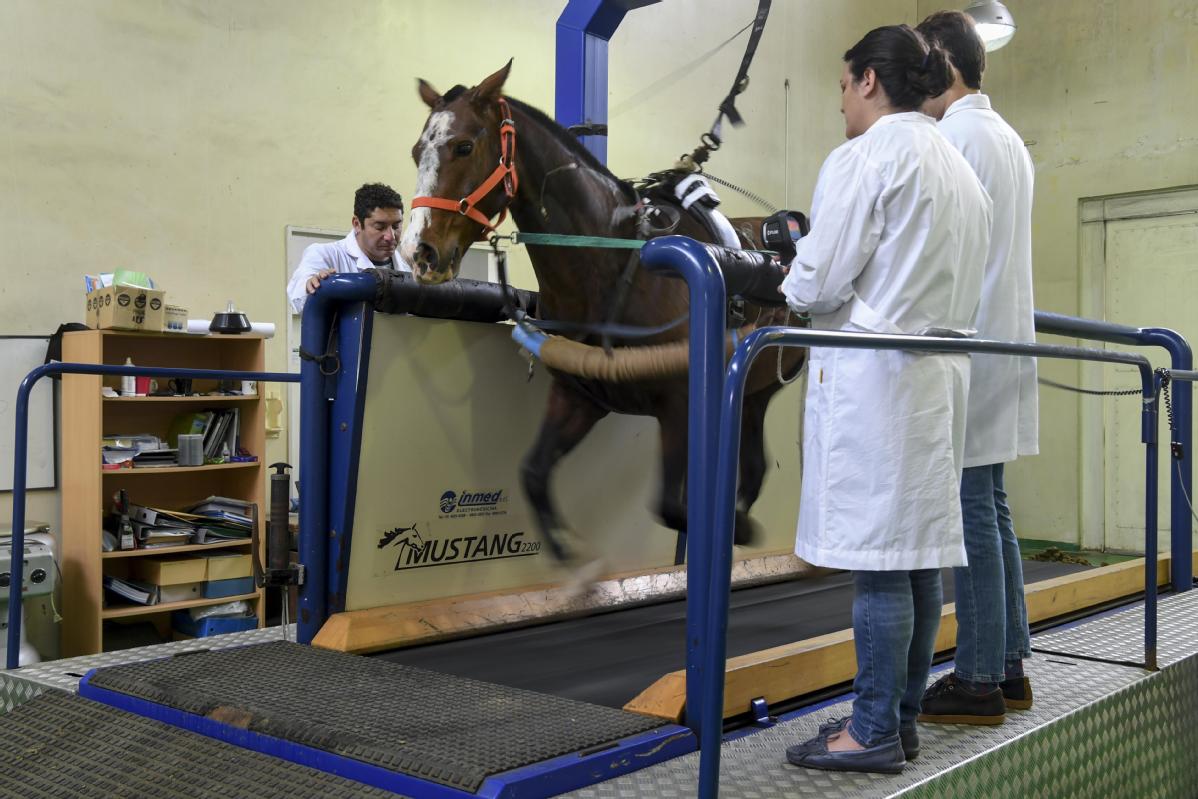Argentine polo turns to genetic mapping to trot out champions
China Daily | Updated: 2018-11-29 08:53

BUENOS AIRES - Are champions born, or raised? That's the question scientists in Argentina are trying to answer as they look to pinpoint the genes that make local horses the best in the world for playing polo.
In Argentina, polo is a big deal, and big business, and to that end, cloning has already been used to reproduce the finest existing mounts.
But scientists want to go one step further and map the entire genome of the Argentine polo horse in order to create the perfect specimen.
From December, a group of five universities will analyze 80,000 horses from the breed as part of a project that will try to identify the ideal genetic balance that makes up a polo horse.
The Argentine horses used to play polo have been bred specifically over decades by crossing a Criollo line descended from the original pure-blooded Andalusian and Arab mounts brought to the New World by Spanish conquistadors, and English thoroughbreds, introduced at the end of the 19th century when British immigrants also imported polo.
For veterinarian Guillermo Buchanan, the Argentine polos "are unique" because of their speed and durability, and because of their mix of explosiveness and docility.
During a polo match these horses, also known as polo ponies due to their agility, "change direction at speed, slow down, turn, accelerate while turning," said horse-breeder Pablo Trigo, who is also co-managing the project.
The Argentine polos distinguish themselves in their rate of learning and sensibility to their rider's desires. They are the most cloned animal in the world.
At stud farms in the Buenos Aires area they are looked after as if works of art. And now science is being used to figure out how to reproduce the finest animals.
'Cutting edge' research
There's nothing new about using applied research and biotechnology to improve polo ponies but interest in the science is growing, as is the money people are prepared to pay for its results.
The clone of a legendary mare fetched a whopping $800,000 at auction.
According to estimates, there are around 200 cloned Argentine polos, many copies of elite level mounts.
So far, all the animals seem to be in excellent health.
Argentina "is absolutely at the cutting-edge of applied research into polo ponies," said geneticist Sebastian Demyda, one of the project's leaders.
This includes every biotechnological technique from embryonic transfer to cloning and gender selection: mares are preferred because of their more docile temperament.
But cloning has its drawbacks, not least when it comes to the gene pool.
"Clones narrow the race's genetic structure, they're like a photocopy," said Demyda.
When it comes to the sport, they also distort the playing field. Cloning costs a minimum of $30,000 meaning only the richest can benefit.
"Cloning isn't available to everyone, it's very expensive and gives certain breeders an advantage."
Agence France-Presse























